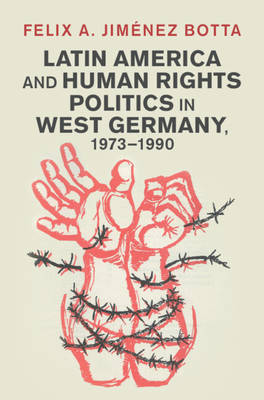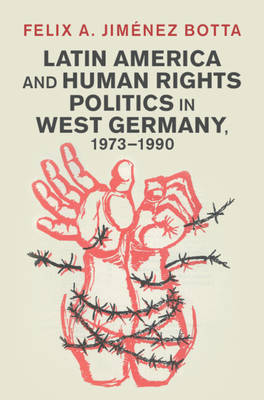
Je cadeautjes zeker op tijd in huis hebben voor de feestdagen? Kom langs in onze winkels en vind het perfecte geschenk!
- Afhalen na 1 uur in een winkel met voorraad
- Gratis thuislevering in België vanaf € 30
- Ruim aanbod met 7 miljoen producten
Je cadeautjes zeker op tijd in huis hebben voor de feestdagen? Kom langs in onze winkels en vind het perfecte geschenk!
- Afhalen na 1 uur in een winkel met voorraad
- Gratis thuislevering in België vanaf € 30
- Ruim aanbod met 7 miljoen producten
Zoeken
Latin America and Human Rights Politics in West Germany, 1973-1990
Felix A Jiménez Botta
€ 209,45
+ 418 punten
Omschrijving
In this richly detailed history, Felix Jiménez Botta traces West German mobilization against human rights abuses in Latin America in the late twentieth century. Initially in the ascendant was a market-critical vision adopted by a loose, left-leaning coalition fighting against right-wing regimes seeking to destroy incipient welfare states and implant market fundamentalism. However, during the later 1970s-80s a market-friendly interpretation gained ground, emphasising negative civil and political rights at the expense of positive economic and social rights. Within these debates, the vocabulary of human rights was a malleable political language that served as a multidirectional point of reference for various actors from civil society, politics, and the churches. By analysing these opposing views of human rights, Jiménez Botta questions the revisionist interpretation of post-1970s human rights as an inherently conservative political and intellectual project. Instead, the triumph of market-friendly human rights in West Germany was contested, contingent and ultimately unfinished.
Specificaties
Betrokkenen
- Auteur(s):
- Uitgeverij:
Inhoud
- Aantal bladzijden:
- 378
- Taal:
- Engels
- Reeks:
Eigenschappen
- Productcode (EAN):
- 9781009473828
- Verschijningsdatum:
- 18/09/2025
- Uitvoering:
- Hardcover
- Formaat:
- Genaaid
- Afmetingen:
- 152 mm x 229 mm
- Gewicht:
- 671 g

Alleen bij Standaard Boekhandel
+ 418 punten op je klantenkaart van Standaard Boekhandel
Beoordelingen
We publiceren alleen reviews die voldoen aan de voorwaarden voor reviews. Bekijk onze voorwaarden voor reviews.









